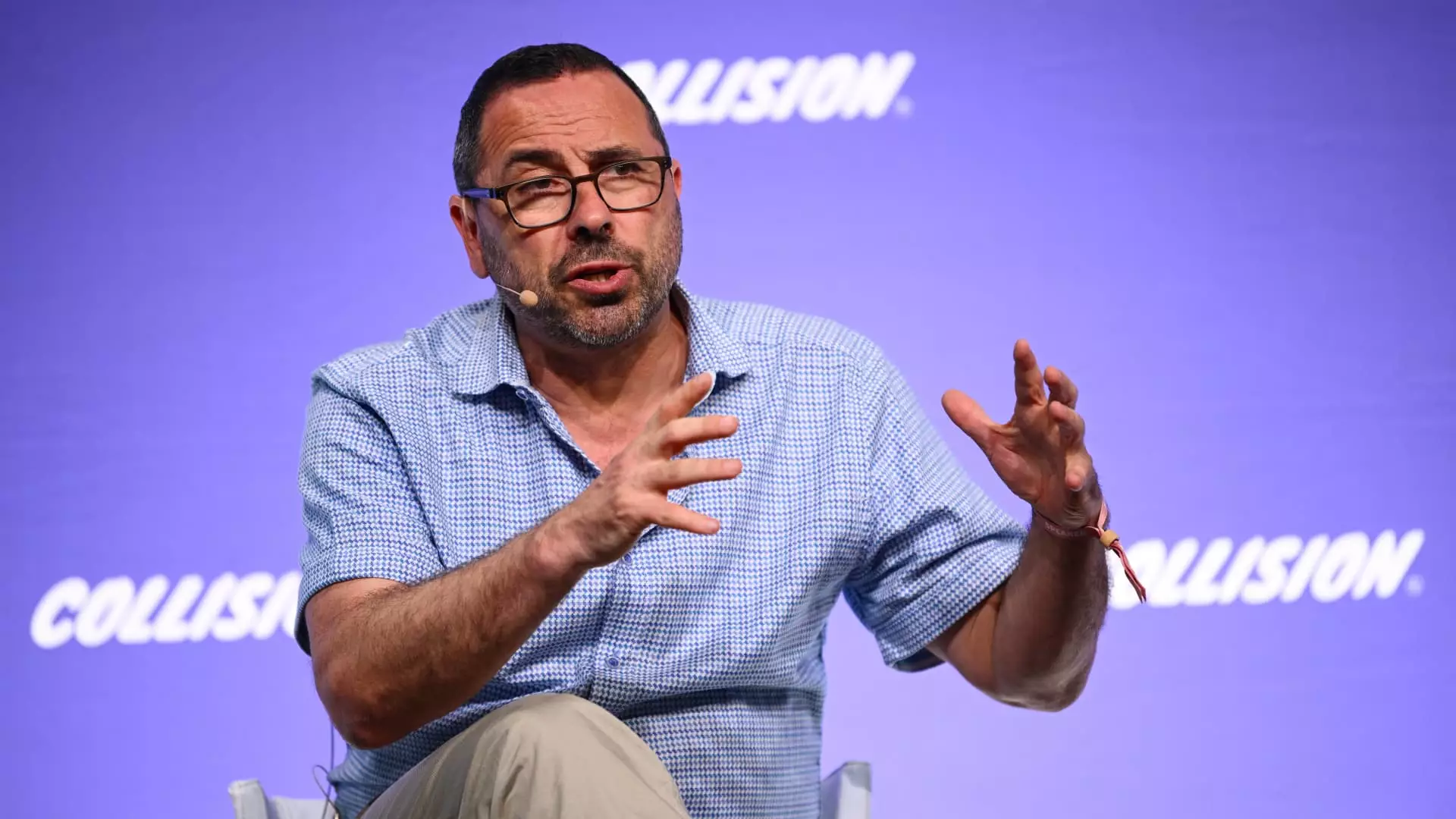The tech landscape is no stranger to companies eyeing initial public offerings (IPOs) to capitalize on investor enthusiasm, particularly in niches like artificial intelligence (AI). Cerebras Systems, an AI chipmaker, emerges as a noteworthy player with aspirations to become the first major venture-backed tech firm to launch an IPO in the U.S. since April. However, its journey toward the public market is far from straightforward, facing obstacles that could significantly impact its performance and reputation.
Cerebras is strategically positioning itself to take advantage of the soaring investor interest surrounding AI technologies, particularly due to the booming market for Nvidia, which recently achieved a staggering market capitalization of approximately $3.3 trillion. Valued at $4 billion in 2021, Cerebras is reportedly aiming to double this figure during its IPO, benefitting from its reputation in AI infrastructure. Indeed, the company’s cutting-edge chips are touted to be faster and more efficient than Nvidia’s graphics processing units (GPUs), especially for training large language models.
Sales figures have shown remarkable growth, with revenues exceeding $78 million in 2023, tripling from previous results. Interestingly, projections indicate further upward trajectory, with total sales expected to reach $136.4 million in the first half of 2024. Cerebras claims a robust pipeline, citing commitments for $1.43 billion worth of systems and services, suggesting a promising financial outlook. Yet, optimism must be tempered with caution.
One of the most glaring concerns plaguing Cerebras is its overwhelming dependence on a singular Middle Eastern client, a fact that raises alarms among potential investors. This client, G42, based in Abu Dhabi, accounted for an astonishing 87% of Cerebras’ revenue in early 2024. This kind of customer concentration poses significant risks—should G42 decide to withdraw its business or delay payment, Cerebras could find itself in a precarious financial position.
Moreover, G42 is not just a customer but also a stakeholder, having expressed interest in expanding its investment in Cerebras substantially. While this relationship could offer financial stability, it also necessitates scrutiny, particularly concerning national security concerns linked with foreign investments in U.S. companies. Increasing scrutiny from U.S. lawmakers on G42’s ties to China adds additional layers of complexity to Cerebras’ IPO ambitions. The notorious Committee on Foreign Investment in the United States (CFIUS) has the power to approve or reject G42’s expanded stake, further complicating Cerebras’ path to going public.
Cerebras’ trajectory toward IPO comes during a climate characterized by a scarcity of tech IPOs and suppressed valuations following a market slump. The current lack of participation from traditional tech investment powerhouses such as Goldman Sachs and Morgan Stanley could be telling; these firms have historically been involved in leading tech IPOs and seem to be wary of this specific deal. Their absence signals potential red flags regarding Cerebras’ financial stability and growth potential.
Doubts surrounding the company’s customer concentration and foreign investment risks are accompanied by Cerebras’ choice of audit firm, BDO, which lacks the prominence of the ‘Big Four’ accounting firms. A reputable audit can provide credibility that attracts investors, and the alignment with a less recognized auditor may unintentionally amplify concerns surrounding transparency and governance.
Moreover, the past legal issues of Cerebras’ CEO, Andrew Feldman, raise questions about corporate governance, further complicating efforts to gain investor trust. His previous guilty plea for circumventing accounting controls casts a shadow over the integrity of the company’s financial practices and may deter cautious investors.
Despite the challenges, the excitement surrounding AI technology and chips provides Cerebras with a potential silver lining. The market for AI is robust, with companies like Nvidia excelling, even reporting profits online. Yet, the contrasting financial performance of Cerebras—reporting a net loss of nearly $51 million in the latest quarter—illustrates the uphill battle it faces to achieve profitability. The issuance of shares and systemic investments in AI technology represents both a potential opportunity and a risk.
Retail investors, like Jim Fitch, express enthusiasm about early involvement in Cerebras, influenced both by the promise of groundbreaking technology and the vision of its leaders. Fitch highlights Cerebras’ ambitious WSE-3 chip as a transformative leap in AI processing capabilities, reinforcing the notion that innovation in technology does resonate positively with certain investor segments.
The road ahead for Cerebras Systems is laden with obstacles, from financial dependencies to external pressures from regulatory bodies. While the company has spawned excitement, those looking to invest should weigh the potential rewards against the risks of concentrated revenue sources and leadership history while keeping an eye on the broader market trends influencing technology investments. Cerebras remains a significant player in the AI infrastructure arena, but its journey to a successful IPO will require adept navigation through significant hurdles.


Leave a Reply